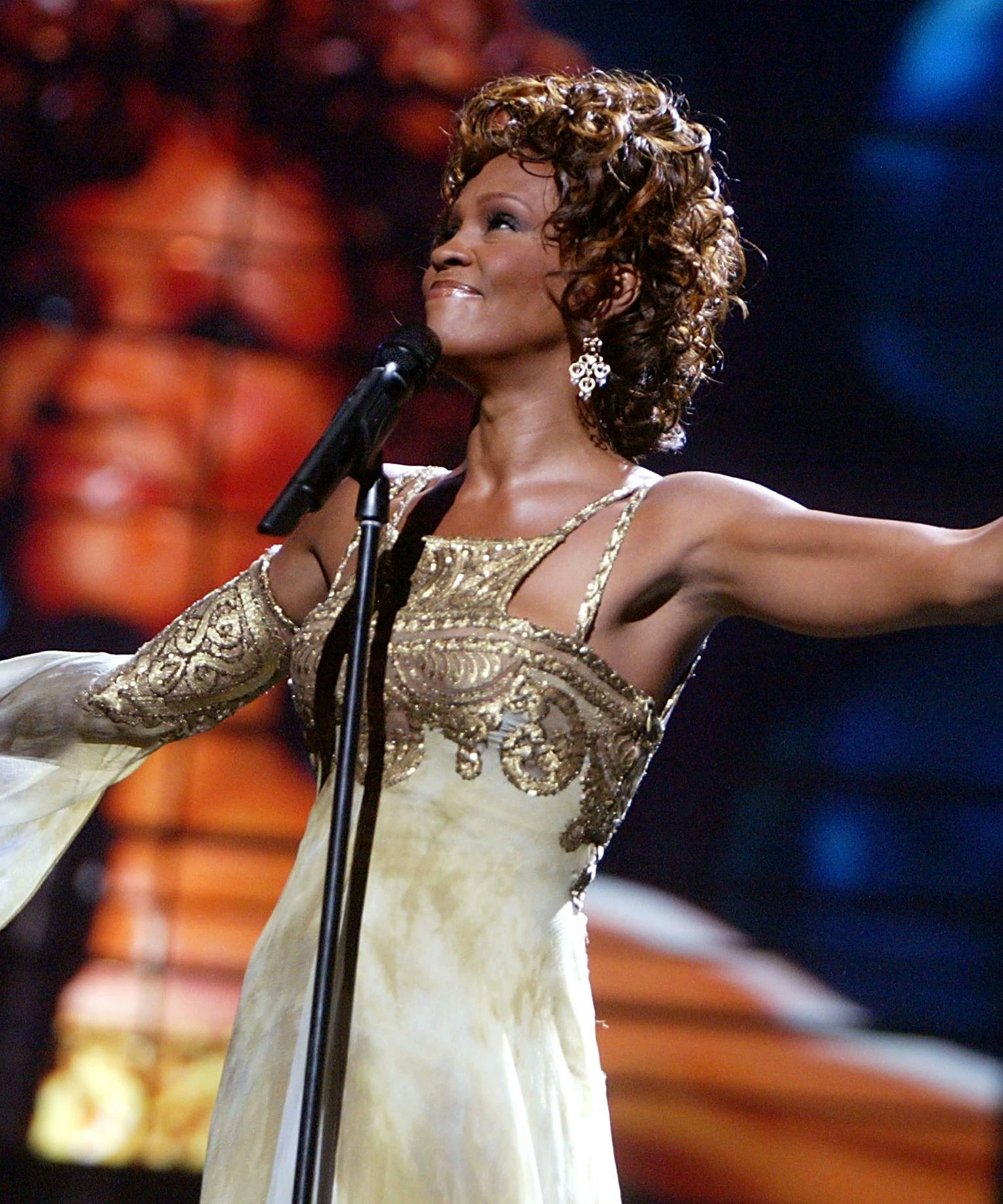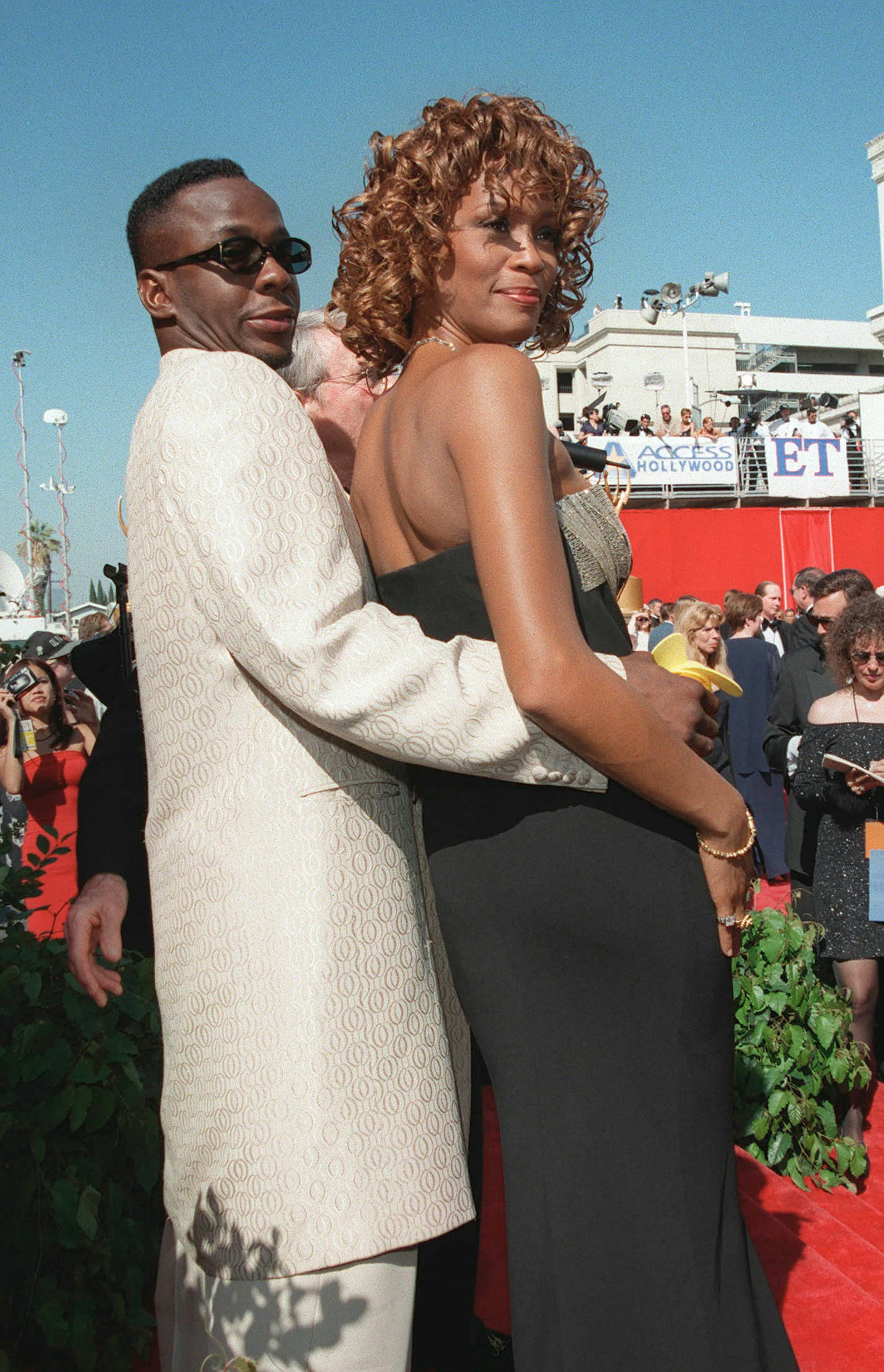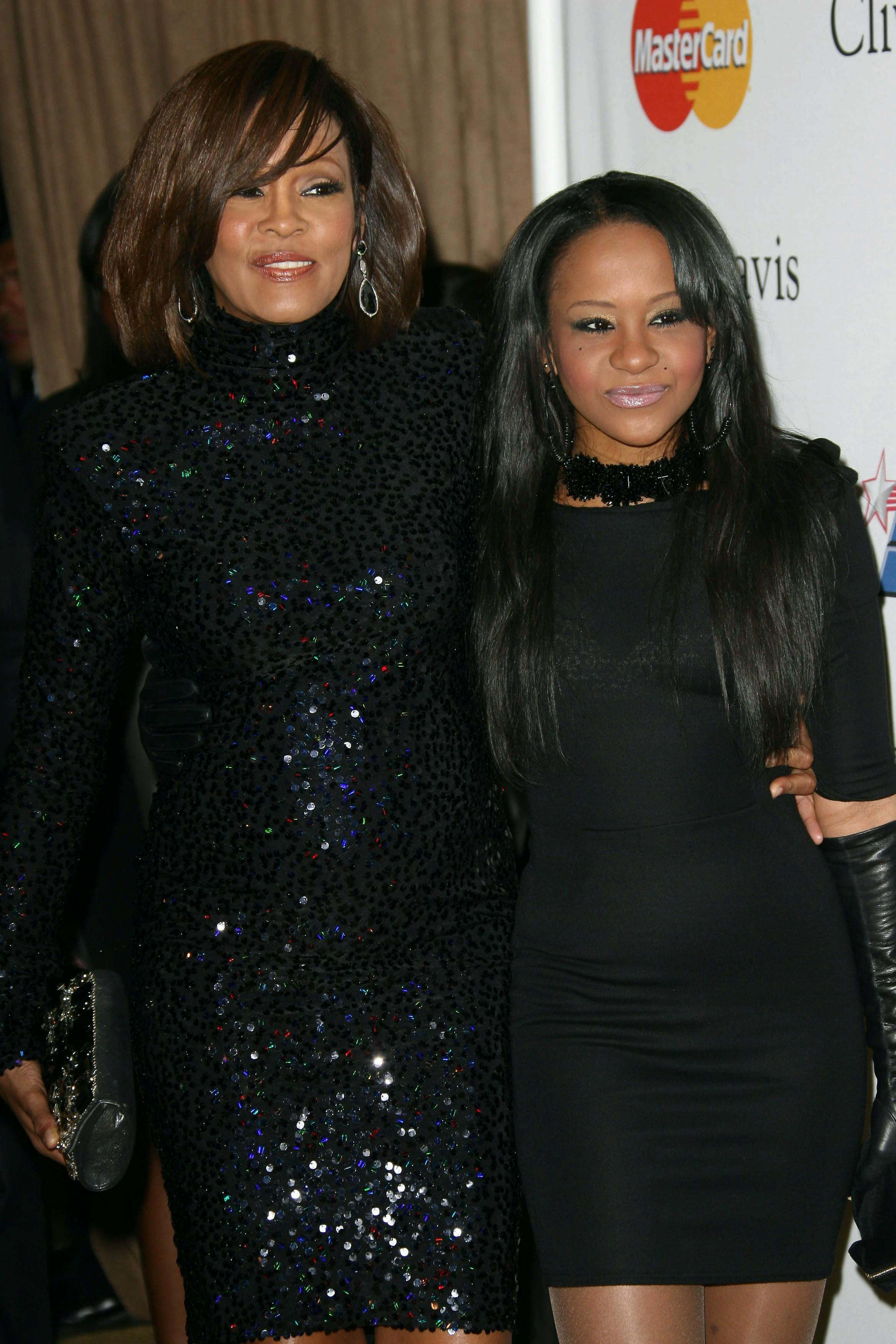It's Been 10 Years Since Whitney Houston Died. A New Book Is Revealing The Truth About Her Career And Tragic Death
From greats like Mariah Carey to current singers, Whitney Houston's name is still mentioned as a major inspiration.

Whitney Houston had a voice of gold. She could belt like a thunderstorm or decrescendo like a soft spring breeze. Her voice was incomparable. Her career was an ultimate success that inspired many singers and music lovers to break boundaries and appreciate all types of music. She was my main singing influence. I was classically trained in various choirs, but Whitney Houston was the songbird above all.
Even if you didn't grow up listening to Whitney Houston on the radio, you've definitely heard some of her hits. "I Wanna Dance with Somebody," anyone? She was one of the biggest stars of the '80s and '90s, but her life was plagued with tragedy. Some believe that it was her marriage to Bobby Brown in 1992 that sent her spiraling into substance abuse. The two divorced in 2007, but the damage was done. Houston died just five years later of a drug overdose, at only 48.
From her tumultuous relation with Brown, to her relationship with friend (and possible lover) Robyn Crawford, and an intense pressure from fans to fit into a certain mold, Whitney Houston's life was not easy. Her career was pushed into stereotypes and molds that she could never fit, and that’s ultimately what led to her tragic death.
Now, music journalist Gerrick Kennedy is exposing the truth behind Whitney's life and last days leading up to her death. His book, Didn't We Almost Have It All: In Defense of Whitney Houston, details Whitney’s last days from an insider’s perspective, but also opens up about how things snowballed out of control – starting from the singer’s professional struggles to create and uphold an industry-worthy image.
The Pressure To "Be More Black"
Whitney Houston’s soft-spoken nature and melodic laugh spoke for itself. She sang pop songs that reached beyond the black community and around the globe. Hits like “I Wanna Dance with Somebody” and “How Will I Know?” were infectious and upbeat. She danced and smiled and won us over.
From the start of her career, Whitney Houston was universally loved. She was smart and funny, and she knew fashion. But she was often criticized for not being “black” enough. Record executives and members of the black community didn’t like how universal she was. They wanted her to “be more black” and act the way people expected black people to act, instead of being herself.
Record executives and members of the black community didn’t like how universal she was.
This pressure is something a lot of black artists face even now. It’s not a topic many people outside the black community wish to approach. It’s uncomfortable and strange to expect anyone to act like a stereotype; it’s an attitude that demands conformity.
It’s that mentality and pressure that chips away at a person’s spirit, and this painful expectation put pressure on Whitney Houston. She battled it throughout her career, working to sing what best defined her while also appeasing certain standards to be accepted within her own community. She described it best in an interview with Katie Couric in 1996 about how she was booed at the 1989 Soul Train Awards: “Sometimes it gets down to ‘You’re not black enough for them. You’re not R&B enough. You’re very pop. The white audience has taken you away from them.’”
Because of this, she spoke out at times, especially when promoting her 1992 movie, The Bodyguard, which was her first starring role and featured her falling in love with a white man despite the struggles that interracial couples faced. The soundtrack held some of her most powerful songs, one of which was borrowed from Dolly Parton. When questioned about her choice to remake a famous country star’s music, Whitney Houston proudly declared, “Music doesn’t have a color.”
Lesbian Relationship or a Manipulative Friend?
At the start of her career, color boundaries were not all that led to Whitney Houston’s downfall. She also had a relationship that some say was manipulative, others claim was same-sex oriented.
Before getting married and starting a family, she was exceptionally close with her girl friend, Robyn Crawford. So much so that rumors of them being romantically involved surfaced. Whitney denied these claims until the day she died, but Crawford released a book in 2019 detailing their supposed lesbian relationship called A Song for You: My Life with Whitney Houston. Whether the book is factual or false is still unknown, but Whitney’s family hated Crawford and publicly decried her as a manipulative influence in her life.
Whitney’s family hated Robyn Crawford and publicly decried her as a manipulative influence in her life.
In Gerrick Kennedy’s book, he confirms Crawford’s accounts and how Whitney’s family wanted nothing to do with that because they were biased. (The black community has a known difficulty accepting the gay community.) If Whitney Houston was already struggling to be “black enough” with her music, a lesbian relationship was impossible. It would have destroyed her career. So she was forced to hide her sexuality. Or, if Crawford’s claims are false, then Whitney was possibly manipulated by a close friend who wanted to be a part of her massive success.
Either way, I think Whitney was once again shoved into a box and molded to do what was expected of her. Whether this led her to turn to drugs to get through the mental trauma, or she was later introduced, leads to the biggest question of all.
Was Dating Bobby Brown a Setup Gone Wrong?
It has been rumored throughout the music industry that Whitney Houston was purposefully encouraged to date Bobby Brown to help her image and prove her “blackness.” Some have even suggested that she was seated by him at the 1989 Soul Train Awards as a setup.
Dating “bad boy” Bobby Brown definitely toned down her clean, good-girl image. It got people talking and led the black community to finally fully accept her and her music. So was this a plot to “darken her” that went horribly wrong?

Whitney Houston and Bobby Brown in 1998.
Bobby Brown was a drug addict, but he was also entertaining and charismatic. Whitney could have easily fallen for him despite plans to just date him long enough to build some street cred.
Whether their “romance” was genuine or matched up, it eventually became all too real. They fell in love. She got hooked on drugs, and the two suffered a rocky relationship filled with drug abuse, alcoholism, and physical and mental abuse. This eventually led to a high-profile divorce, but during their marriage, Whitney gave birth to one daughter, Bobbi Kristina. She was so proud of her baby that she even featured her pregnant bump in the music video for “I’m Every Woman.”
The two suffered a rocky relationship filled with drugs, alcoholism, and physical and mental abuse.
Yet, Bobbi Kristina was raised in such a tumultuous lifestyle that she followed her parent’s path. Whitney Houston died of a drug overdose on February 11, 2012, just over 10 years ago. She was found in her bathtub, unresponsive.
Her beautiful daughter, whom she loved dearly, was in a relationship with a man very much like Bobby Brown at the time. She and her boyfriend, Nick Gordon, both had substance abuse issues, and after her death, allegations of physical abuse surfaced. Bobbi Kristina died three years after her mother’s death. She too was found unresponsive, face down in a bathtub. She spent five months in hospice before passing away. Foul play was suspected, but Gordon was never charged with any convictions.

Houston and her daughter, Bobbi Kristina, in 2011.
The weirdest aspect of this tragedy is that Bobby Brown himself accused Gordon, his daughter’s boyfriend, of killing both his daughter and his ex-wife Whitney Houston by supplying their drugs, but nothing came of this. Gordon died of a heroin overdose in January 2020, and the mystery of what happened to Bobbi Kristina, and the ties between her death and her mother’s death, remain unsolved.
When putting the pieces together, it’s not difficult to see a pattern, a cycle of abuse. Whitney’s experiences led her toward suffering. That suffering was passed onto her daughter, and that’s a generational example of just how deep these kinds of expectations go.
Avoidable Tragedies
When examining Whitney Houston’s life, career, and death, there’s a lot to take into account. Even her mother published a book about the famous singer called Remembering Whitney: My Story of Love, Loss, and the Night the Music Stopped.
Whitney Houston was not accepted for who she was. If Whitney had been allowed to be who she really was, perhaps she would have gone on to live a happier, healthier, longer life. Perhaps that would have saved her daughter from repeating her mother’s mistakes.
Most of us know what it is to feel constrained by societal expectations of who we should be. This is why Whitney’s story still strikes us 10 years later. We watched her get clean and celebrate making better decisions, only to see her fall back into destructive habits. It’s a cautionary tale that should leave everyone to question all levels of the entertainment industry, especially mainstream outlets.
Closing Thoughts
It’s taken 10 years for the truth about Whitney Houston to come to light, and there’s still so much her fans don’t know (that we may never know.) Even so, her talent and her grace are what we remember the most, because she inspired people to look beyond color and division. That’s a hell of a legacy to leave behind – tragedy or no tragedy.
Love Evie? Let us know what you love and what else you want to see from us in the official Evie reader survey.